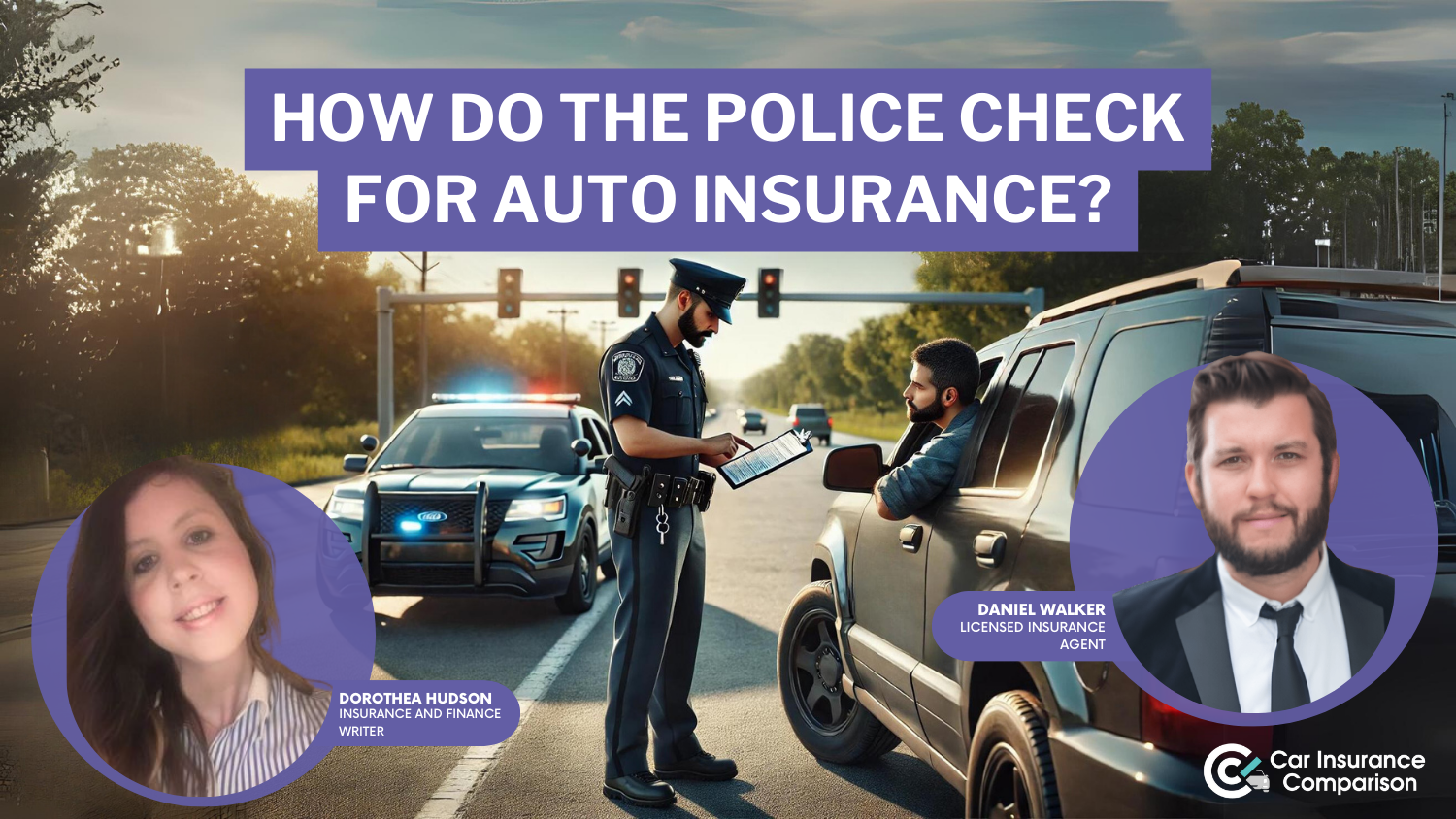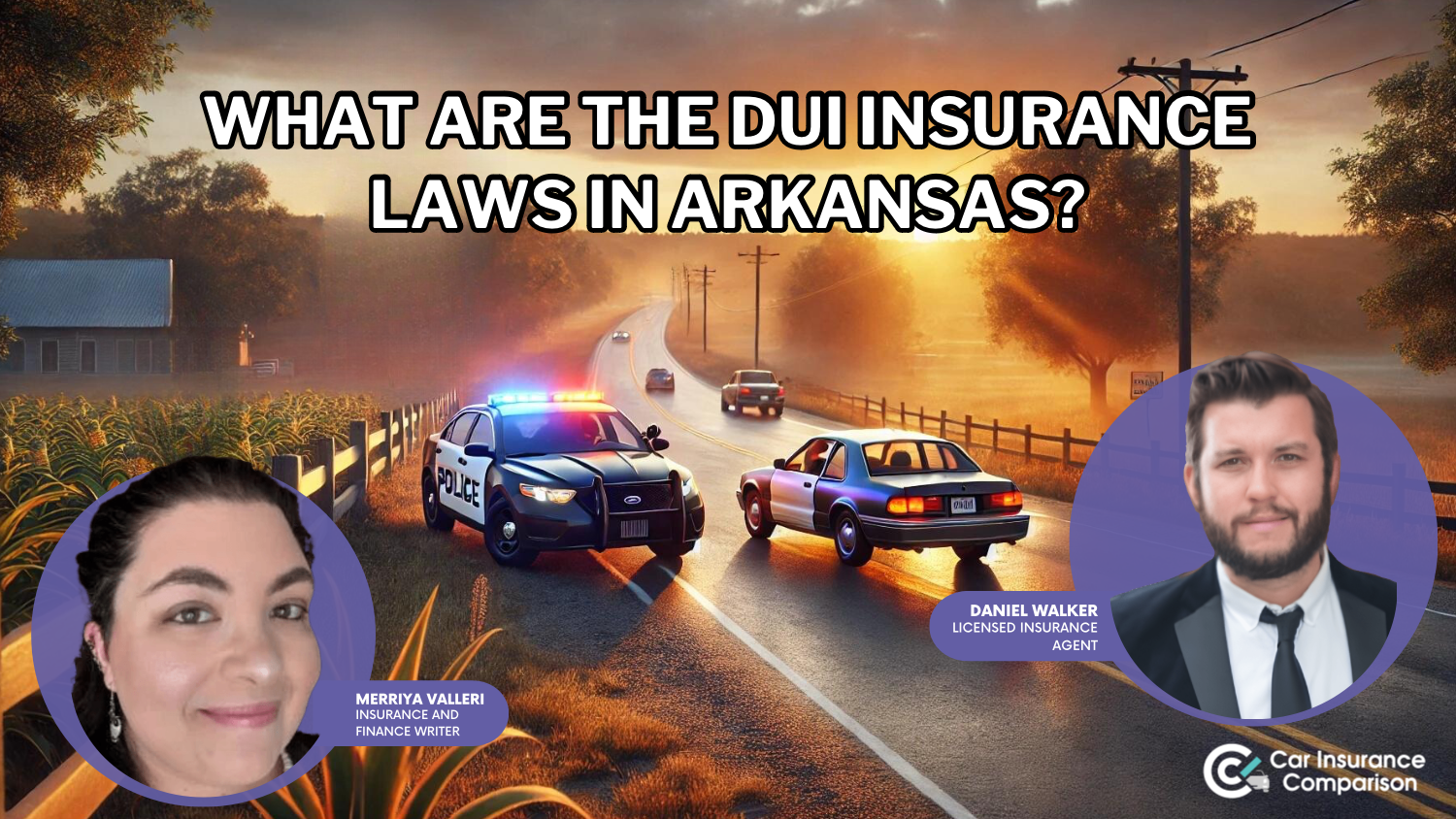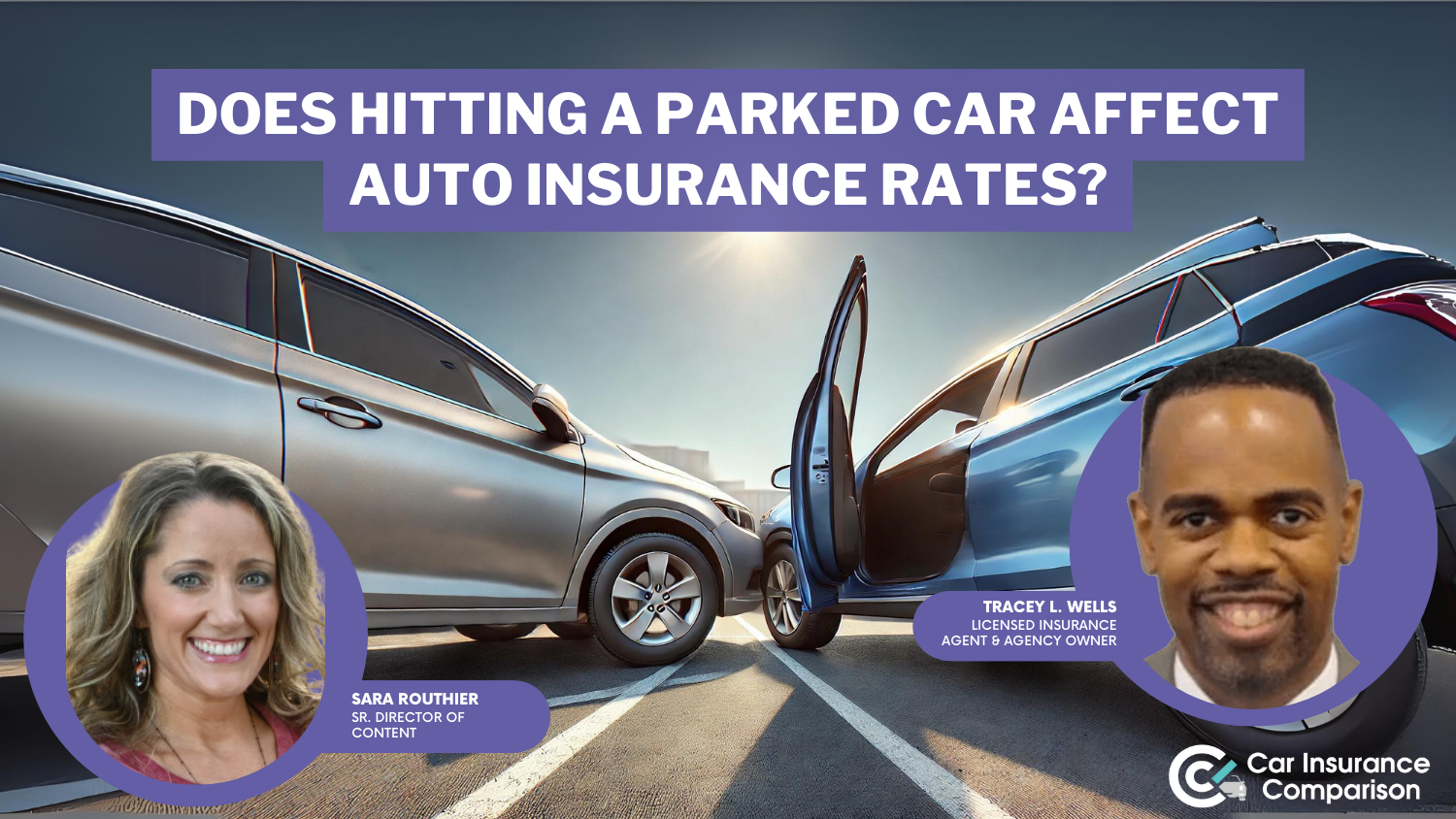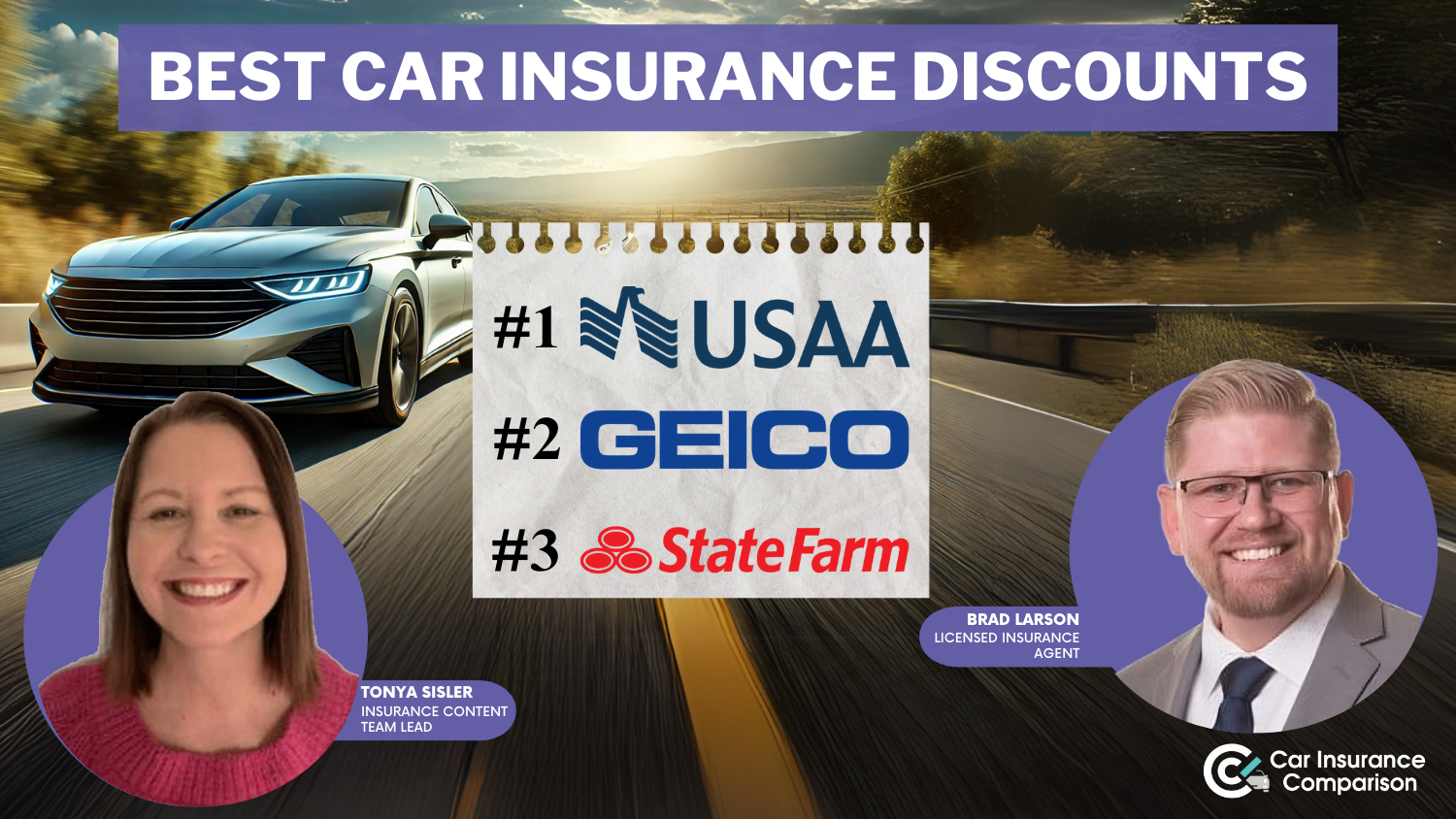What insurance coverage is required for a food truck in Washington, D.C.?
Typically, Washington D.C. food truck owners pay $105/mo for a business owner's policy that includes general liability and property insurance. Food truck insurance rates in D.C. vary and are based on equipment value and location.
Read more Secured with SHA-256 Encryption





Table of Contents
Table of Contents


Insurance and Finance Writer
Alexandra Arcand is an outreach administrator and insurance expert located in North Central Ohio. She has a passion for writing, investing, and education. As an insurance content writer for over three years, Alexandra has first-hand experience in business finance, economics, and real estate. She leads an outreach writing team that specializes in travel, real estate, healthcare, law, finance, an...
Alexandra Arcand


Licensed Insurance Agent
Brad Larson has been in the insurance industry for over 16 years. He specializes in helping clients navigate the claims process, with a particular emphasis on coverage analysis. He received his bachelor’s degree from the University of Utah in Political Science. He also holds an Associate in Claims (AIC) and Associate in General Insurance (AINS) designations, as well as a Utah Property and Casual...
Brad Larson
Updated October 2024
A business plan is essential to starting your food truck business because it will allow you the chance to have a clear outline of what to expect from the business.
Comparing insurance quotes can sometimes be overwhelming, so having a space to keep all of your potential insurance information in your business plan will help you be more prepared.
Your food truck will have a higher chance of success if you are prepared with a solid business plan. Use our FREE quote tool to compare auto insurance today!
- Food truck owners in Washington, D.C. must be prepared for stricter insurance requirements.
- Typically, Washington D.C. food truck owners pay $105/mo for a business owner’s policy that includes general liability and property insurance.
- The country’s Capitol requires business owners to insure different parts of their business under different policies
- You can’t put policies together, but you can bundle the purchase and billing of certain policies
Do I Need A Food Truck Business Plan?
The business plan will be what will help you get the most out of your business. If you are not prepared with a business plan, you may not be able to handle some of the expenses that can come from insurance policies, business regulations and other incidentals you may end up having to pay.
A good idea is to include everything in your business plan. Even if you don’t think you’ll need each of these things, you should put them in your business plan so you have them in the future:
- The requirements you must meet for a food establishment in Washington, D.C.
- A list of regulations you will need to meet; consider creating a checklist for yourself
- All business costs including all the incidentals you can think of
- Plans for saving money in case something goes wrong with your business
- In-depth analysis of what your profit margins are going to look like; you should know this to the dollar
The Washington, D.C. regulations are different from other states across the United States in that they require you to meet the same type of regulations as stationary food establishments.
This can be difficult for a mobile facility because you don’t have as much room.
Washington, D.C. food truck owners are often held to a higher standard of safety than those who are located in other states or areas around the country.
You will need to not only know how to properly handle and prepare food but you’ll also need proof of insurance on your vehicle, your business and any employees you may have.
Insurance and Safety Compliance
One thing most people forget to account for is the cost of food safety compliance. The first step is to be certified by Washington, D.C. in food compliance.
You will need a certificate that you can display in your food truck. It costs money to get the certificate and can also cost money to take the classes to learn everything you need to know to get the certification.
In addition to the certification, you will need to meet the requirements. Buying an extra sink, keeping track of how many gloves you have and accounting for the containers you’ll need to use for food storage can all add up quickly.
Keep these costs in mind for your startup as well as your day to day operations.
While most potential food truck owners understand they need insurance policies for the business, many don’t understand the laws in Washington, D.C. require them to insure different aspects of the business all under different policies.
This can be costly especially if you are not prepared for these costs when you start your business.
Free Insurance Comparison
Compare Quotes From Top Companies and Save
Secured with SHA-256 Encryption
Food Truck Insurance Coverage
Washington, D.C. has different insurance requirements for the food trucks.
Unlike most other locations where you can own a food truck, Washington, D.C. does not have separate counties or regions that will all have different rules. The rules for the district are all the same.
Auto Insurance
The state minimum is what you will need to carry on your food truck. This is not what you should carry on the food truck, though.
A commercial auto insurance policy is different from a personal one only in name and coverage opportunities. The commercial policies will allow for higher limits which can protect you in the event you are in an accident while you are running your business.
The requirement for commercial auto insurance in Washington, D.C. is that you will need to carry general liability.
The state minimum is $10,000 for property damage, and $25,000 each for third party liability, uninsured motorist and uninsured motorist property damage.
Comprehensive coverage is another popular option for commercial insurance in Washington, D.C.
While it is not mandatory like a general liability policy, it is a good idea to carry it on your food truck because it will protect you if you hit an animal, there is a natural disaster or your food truck has an auto fire.
Many business owners have been protected because they have comprehensive coverage on their vehicle.
Hired, Non-Insured, PIP
Medical payments (PIP) help to protect you in the event there is severe bodily damage from your food truck. Washington, D.C. requires you to have a minimum of $25,000 in coverage for your PIP.
Non-insured will protect you from an uninsured driver and can usually be built into your collision coverage. Hired insurance is only necessary if you have employees or plan to have them in the future.
Business Coverage
Business coverage is required in Washington, D.C. because of the protection it provides in the event something related to your business happens to someone or something.
The general liability coverage you carry will protect you if anything happens related to your business. If someone is hurt while at your food truck, gets sick from your food or anything else that you could be at fault, the general liability policy will cover it.
You can also add property insurance to your business insurance policy. This coverage will protect the property that your business owns.
Things like cooking equipment, extra supplies, and other business things are not covered under auto insurance, so the property insurance policy will cover them.
Employee Coverage
It is necessary to cover your employees who are working for you. This is a good idea because you will need to protect them in case something happens while they are working.
An umbrella policy is great to carry because it will protect all areas of your business, including the employees you have.
It is also necessary to have workman’s compensation insurance in Washington, D.C..
While some people choose to hire employees as contractors, this is a poor practice and can end up hurting worse than simply paying for the workman’s compensation insurance.
Saving Money on Food Truck Insurance in Washington, D.C.
Despite having to have many different policies for your food truck business in Washington, D.C. you can group them all together in a bundle. This makes it easy for you to pay one simplified insurance bill for your business.
While the policies are all separate, you will be billed and can have paperwork on just one policy which helps to save on frustration and costs.
The biggest problem with bundling is that you may have too much coverage that can sometimes overlap. Use our FREE quote tool to compare auto insurance today!
Case Studies: Insurance Coverage for Food Trucks in Washington, D.C.
Case Study 1: The Gourmet Grub Food Truck
The Gourmet Grub food truck in Washington, D.C. recognized the importance of insurance coverage for their business. They understood that a business owner’s policy, including general liability and property insurance, was necessary to protect their food truck and comply with regulations.
By comparing quotes, they found affordable coverage that met their needs. The Gourmet Grub food truck prioritized safety compliance and ensured they had the appropriate certificates for food handling. They also invested in comprehensive coverage to protect against accidents, natural disasters, and fires.
Case Study 2: The Savory Snacks Food Truck
The Savory Snacks food truck in Washington, D.C. understood the specific insurance requirements for their business. They obtained commercial auto insurance with general liability coverage to meet the state minimum requirements. Recognizing the importance of employee protection, they also obtained workman’s compensation insurance.
The Savory Snacks food truck took advantage of bundling their insurance policies to simplify the billing process and potentially save on costs. By regularly reviewing their coverage and comparing quotes, they ensured their insurance aligned with their evolving business needs.
Case Study 3: The Tasty Treats Food Truck
The Tasty Treats food truck in Washington, D.C. recognized the higher safety standards imposed on food trucks in the district. They understood the importance of comprehensive insurance coverage to protect their business.
The Tasty Treats food truck invested in commercial auto insurance with higher liability limits, comprehensive coverage for their vehicle, and property insurance to safeguard their cooking equipment and supplies. They also ensured their employees were protected by obtaining workman’s compensation insurance.
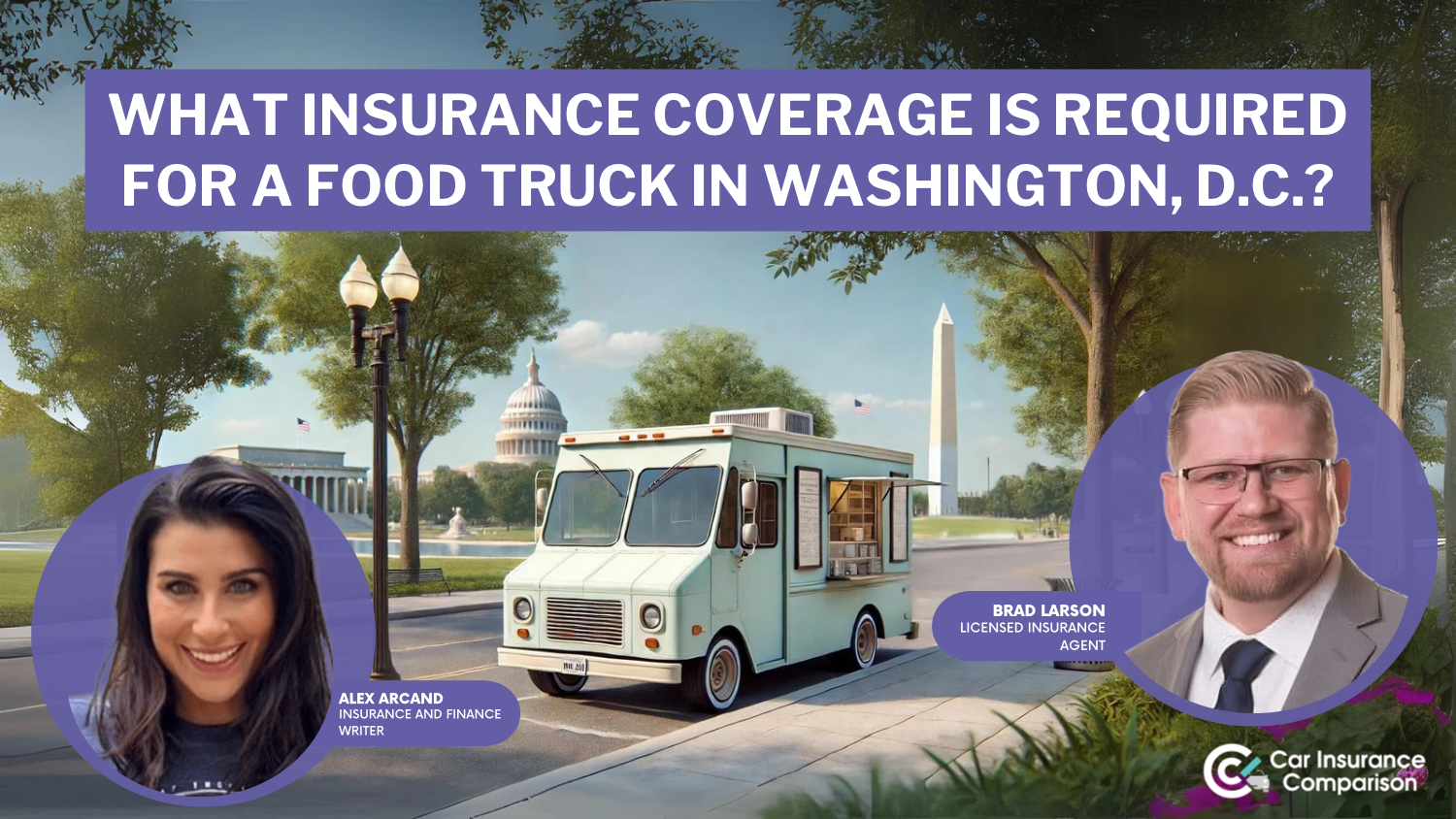
Frequently Asked Questions
What insurance coverage is required for a food truck in Washington, D.C.?
Washington, D.C. food truck owners are typically required to have a business owner’s policy that includes general liability and property insurance. The average cost is around $105 per month, but rates may vary based on equipment value and location.
Are food truck owners in Washington, D.C. subject to any specific regulations or safety standards?
Yes, Washington, D.C. food truck owners must meet the same regulations as stationary food establishments. This includes proper food handling and preparation practices, as well as proof of insurance for the vehicle, the business, and any employees.
What types of insurance coverage are necessary for a food truck in Washington, D.C.?
Food truck owners in Washington, D.C. are required to have commercial auto insurance with general liability coverage. Additionally, it is recommended to consider comprehensive coverage for protection against accidents, natural disasters, and fires. Business coverage, including general liability and property insurance, is also essential. Employee coverage, such as workman’s compensation insurance, may be necessary if you have employees.
Can I bundle insurance policies for my food truck in Washington, D.C. to save money?
Yes, you can often bundle the different insurance policies for your food truck business in Washington, D.C. into a single bundle. This simplifies the billing process and may help reduce costs. However, it’s important to review the coverage to avoid any overlapping or unnecessary coverage.
How can I save money on food truck insurance in Washington, D.C.?
In addition to bundling policies, you can save money on food truck insurance in Washington, D.C. by comparing quotes from different insurance providers. Using a free quote tool can help you find the best rates for your specific needs. It’s also important to regularly review your insurance coverage to ensure it aligns with your business requirements.
Get a FREE Quote in Minutes
Insurance rates change constantly — we help you stay ahead by making it easy to compare top options and save.


